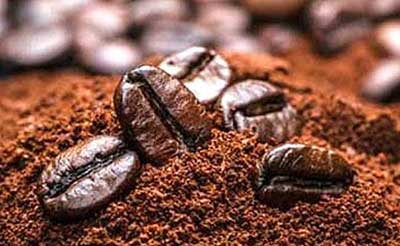Relevance: GS-3: Conservation, Environmental Pollution, and Degradation, Environmental Impact Assessment.
Key Phrases: Coffee Board of India, Memorandum of Understanding, ISRO, climate-resistant coffee varieties, Good agricultural practices, carbon sequestration, carbon sink.
Why in News?
- Coffee Board is planning to focus on developing new varieties that will be resistant to the changing climatic patterns.
- A Memorandum of Understanding (MoU) between the Coffee Board and ISRO is going to be signed about breeding climate-resilient varieties and assessing the carbon sequestration potential in coffee among others.
Coffee Board of India
- Coffee Board of India is a statutory organization constituted under the Coffee Act, 1942.
- It is headquartered in Bangalore.
- The organization is managed by the Ministry of Commerce and Industry to promote coffee production in India.
What are the critical climate challenges facing coffee?
- Loss of suitable area for coffee production and shifts to higher altitudes
- Increased water stress
- Poor flowering and cherry development due to rising temperatures
- Storms with heavy wind and rain can also cause damage to trees and equipment.
- Increased outbreaks of pests and diseases
- Increased vulnerability of smallholders as they are least resilient, often depending almost entirely on coffee as a livelihood.
Need for climate-resistant coffee varieties:
- Coffee growers in the country have been facing the brunt of changing climatic patterns in recent years.
- The number of extreme weather events such as excess rains within a short period or deficit rainfall impacting the growers are on the rise.
- Rising temperatures will reduce the area suitable for growing coffee by up to 50% by 2050.
- With the climate change here to stay, there is a need for research to develop climate-resistant coffee varieties, which perform the same whether it is drought or floods.
How can ISRO help?
- There is no scientific data to show how much carbon is sequestered.
- ISRO has the technology to figure out how much carbon is released and how much is absorbed by the plants.
- ISRO will install the technology in one of the technology evaluation centres at farms and monitor the data for the next two years.
- Such data on carbon sequestration will help growers command a premium in markets like Europe.
Coffee production in India:
Major Areas:
- Coffee in India is grown under a canopy of thick natural shade in ecologically sensitive regions of the Western and Eastern Ghats spread over Karnataka, Kerala, and Tamil Nadu.
- Karnataka is the largest producer accounting for about 70% of the total coffee production.
- Coffee cultivation is also expanding rapidly in the non-traditional areas of Andhra Pradesh and Odisha as well as in the North-East states.
Conditions of Growth:
- Climate: hot and humid climate
- Temperatures: varying between 15°C and 28 °C
- Rainfall: 150 to 250 cm.
- It is generally grown under shady trees.
- It does not tolerate frost, snowfall, high temperatures above 30°C, and strong sunshine.
- Prolonged drought is also injurious to coffee.
- Dry weather is necessary at the time of ripening of the berries.
- Stagnant water is harmful and the crop is grown on hill slopes at elevations from 600 to 1,600 meters above sea level.
- Well-drained, loams containing a good deal of humus and minerals like iron and calcium are ideal for coffee cultivation.
- Coffee can be cultivated in a variety of soils, although fertile volcanic red earth or deep sandy loam is favourable.
Coffee varieties:
- The two main varieties of coffee viz., Arabica (49% of the area) and Robusta (51% of the area) are grown in India.
- Arabica is a mild coffee, but the beans being more aromatic, it has a higher market value compared to Robusta beans.
- Robusta has more strength and is, therefore, used in making various blends.
- Arabica is grown in higher altitudes than Robusta.
- The cool and equable temperature, ranging between 15°C to 25°C, is suitable for Arabica while for Robusta, a hot and humid climate with a temperature ranging from 20°C to 30°C is suitable.
- The harvest of Arabica takes place between November to January, while for Robusta it is December to February.
What strategies can be used to increase climate resilience?
- Further research on the impacts of climate change on coffee:
- Conduct climate risk and vulnerability assessments for key supply regions.
- Invest in updating assessments with high-resolution climate forecasts.
- Identify adaptation options for farmers based on level of severity and vulnerability.
- Good agricultural practices for soil, water, and pest control can help maintain productivity in the face of suitability loss.
- Designing and implementing financial mechanisms to facilitate investment such as targeted subsidies, grant financing, supply chain finance, etc.
- Investing in adaptation, breeding, and development of more resistant coffee varieties
- Strengthening national development and environmental policies
- Strengthening farmer organizations
Conclusion:
- The climate is changing, and for the coffee industry to survive, immediate action is required.
- In this direction the collaboration of the Coffee Board with ISRO for the development of climate-resistant varieties of coffee is a welcome step.
- The government now needs to mobilize and promote the adoption of climate adaptation practices to be integrated into day-to-day training activities with farmers - at farm level, beyond farm level, and along the entire value chain.
Source: The Hindu BL
Mains Question:
Q. What are the impacts of climate change on coffee production in India? Suggest some strategies to increase climate resilience for the coffee crop.







